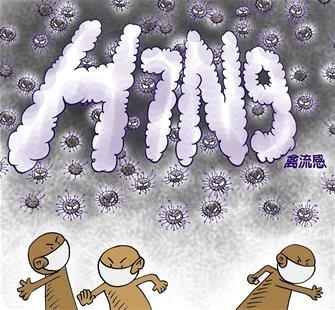Japan trials to prevent H7N9 infection vaccine
 It is reported that Japan has started research on the H7N9 bird flu problem found in China. Tokushima University of Arts and Science has developed a technique to quickly diagnose infection. The National Institute of Communicable Diseases of Japan plans to trial production of a vaccine that prevents infection by spraying into the nose. Hokkaido University will also conduct vaccine research using viruses extracted from bird flu patients.
It is reported that Japan has started research on the H7N9 bird flu problem found in China. Tokushima University of Arts and Science has developed a technique to quickly diagnose infection. The National Institute of Communicable Diseases of Japan plans to trial production of a vaccine that prevents infection by spraying into the nose. Hokkaido University will also conduct vaccine research using viruses extracted from bird flu patients. Tokushima University of Arts and Science Professor Ito Yuraku has developed a technique to diagnose infections by detecting nasal discharge. Using a special instrument that is more accurate than the commercially available inspection equipment, results can be obtained in 15 minutes. Currently, Tokushima University of Arts and Sciences is working with diagnostic drug development companies to develop portable diagnostic test drugs and diagnostic instruments. Professor Ito said: "As long as there is a higher purity H7N9 virus strain can also deal with." The diagnostic technology developed by Tokushima University professor Mutobote can diagnose all kinds of flu immunity at once. The immune status of 20 infectious diseases can be diagnosed with 1 drop of blood or nasal discharge.
The Institute of Infectious Diseases Minister Hideo Tanikawa and others have developed a vaccine that prevents infection by injecting into the nose, and confirmed that the vaccine is effective in clinical studies using ordinary influenza viruses. This vaccine can activate the immune system of the nasal mucosa to form antibodies against the virus. In the future, the agency will trial the vaccine against the H7N9 virus.
Hokkaido University Professor Hideo Hirotaka and others plan to obtain the H7N9 strain isolated from Chinese patients. Hokkaido University has begun to produce antibodies that reduce the infectivity of the H7 virus. After the virus is obtained, the antibodies will be used in actual virus strains to confirm whether they are effective. Professor Kawaoka Yoshihiro and others from the University of Tokyo are planning to collaborate with the Science and Technology Agency (JST) to study the infectious and proliferative capacity of the H7N9 virus.
Wenzhou Celecare Medical Instruments Co.,Ltd , https://www.celecaremed.com